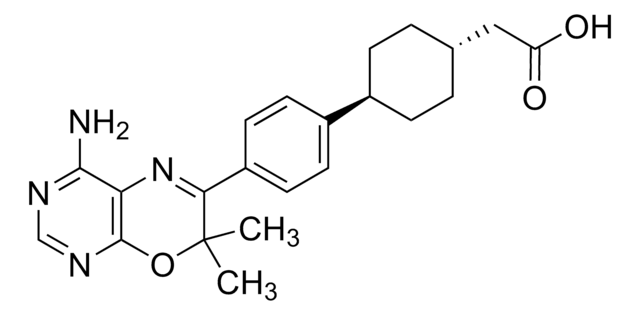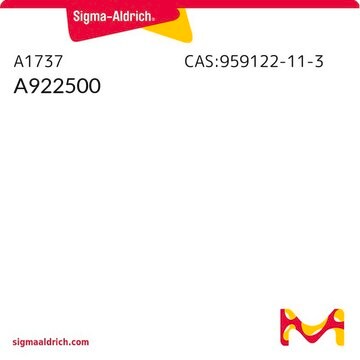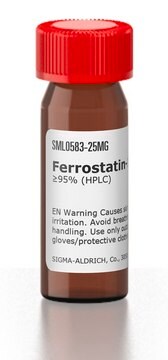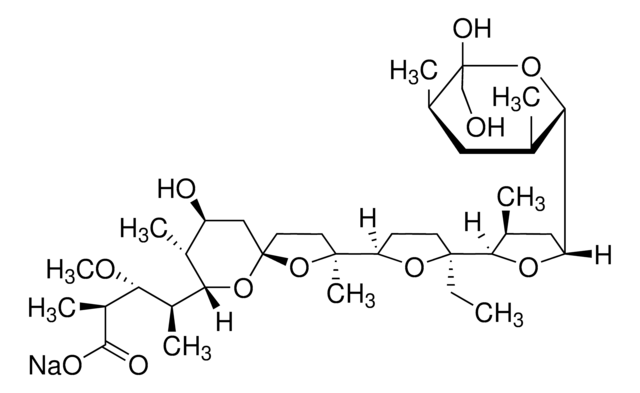T4540
Triacsin C from Streptomyces sp.
Synonym(s):
2,4,7-Undecatrienal nitrosohydrazone, WS1228A
About This Item
Recommended Products
biological source
Streptomyces sp.
Quality Level
form
powder
solubility
methanol: soluble 4.90-5.10 mg/mL, clear (Pale yellow to yellow)
methanol: soluble 4.90-5.10 mg/mL, clear, pale yellow to yellow
Mode of action
enzyme | inhibits
shipped in
wet ice
storage temp.
−20°C
SMILES string
CCC\C=C\C\C=C\C=C\C=N\NN=O
InChI
1S/C11H17N3O/c1-2-3-4-5-6-7-8-9-10-11-12-13-14-15/h4-5,7-11H,2-3,6H2,1H3,(H,13,15)/b5-4+,8-7+,10-9+,12-11+
InChI key
NKTGCVUIESDXPU-YLEPRARLSA-N
General description
Application
Biochem/physiol Actions
Preparation Note
Storage Class Code
11 - Combustible Solids
WGK
WGK 3
Flash Point(F)
Not applicable
Flash Point(C)
Not applicable
Certificates of Analysis (COA)
Search for Certificates of Analysis (COA) by entering the products Lot/Batch Number. Lot and Batch Numbers can be found on a product’s label following the words ‘Lot’ or ‘Batch’.
Already Own This Product?
Find documentation for the products that you have recently purchased in the Document Library.
Our team of scientists has experience in all areas of research including Life Science, Material Science, Chemical Synthesis, Chromatography, Analytical and many others.
Contact Technical Service








